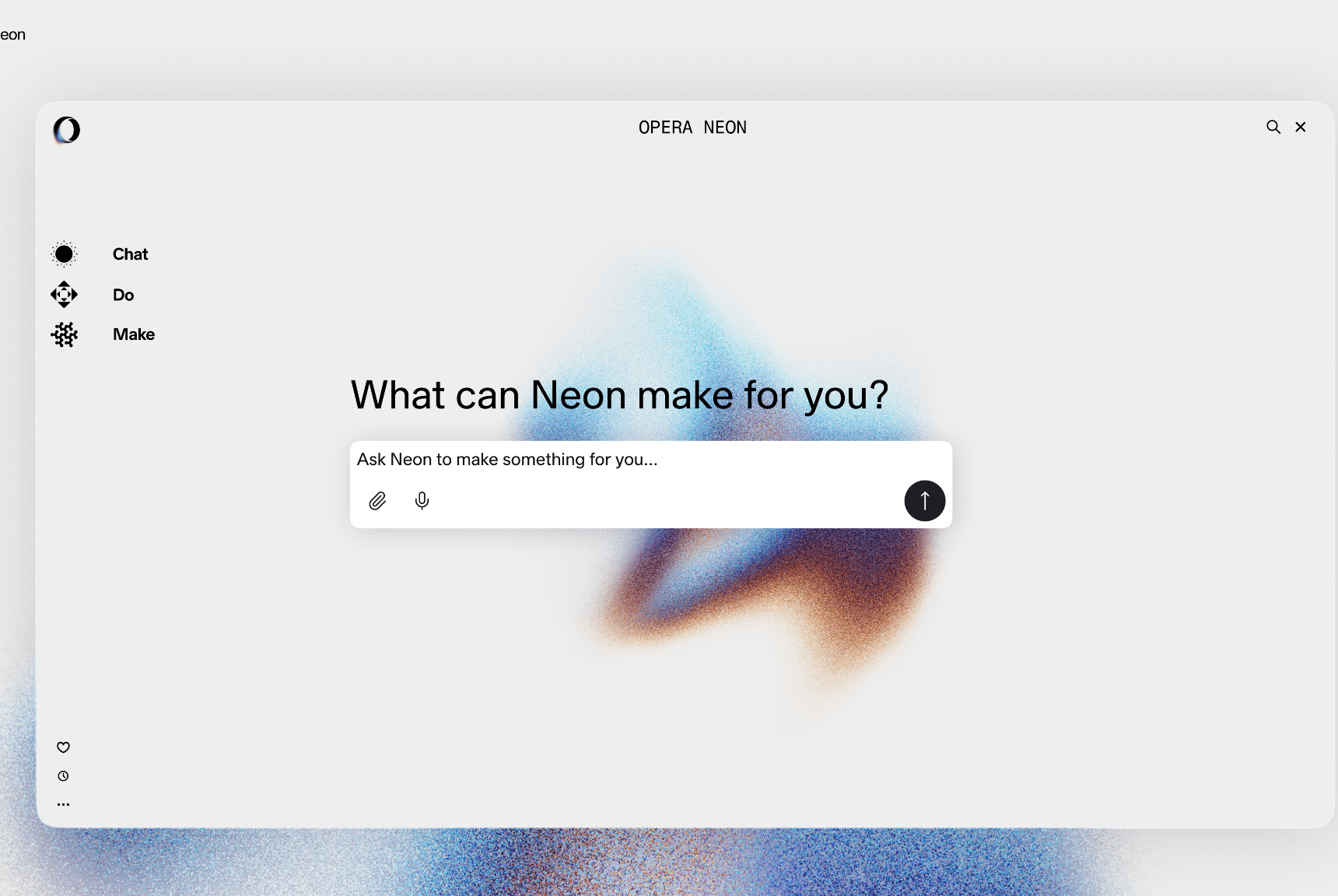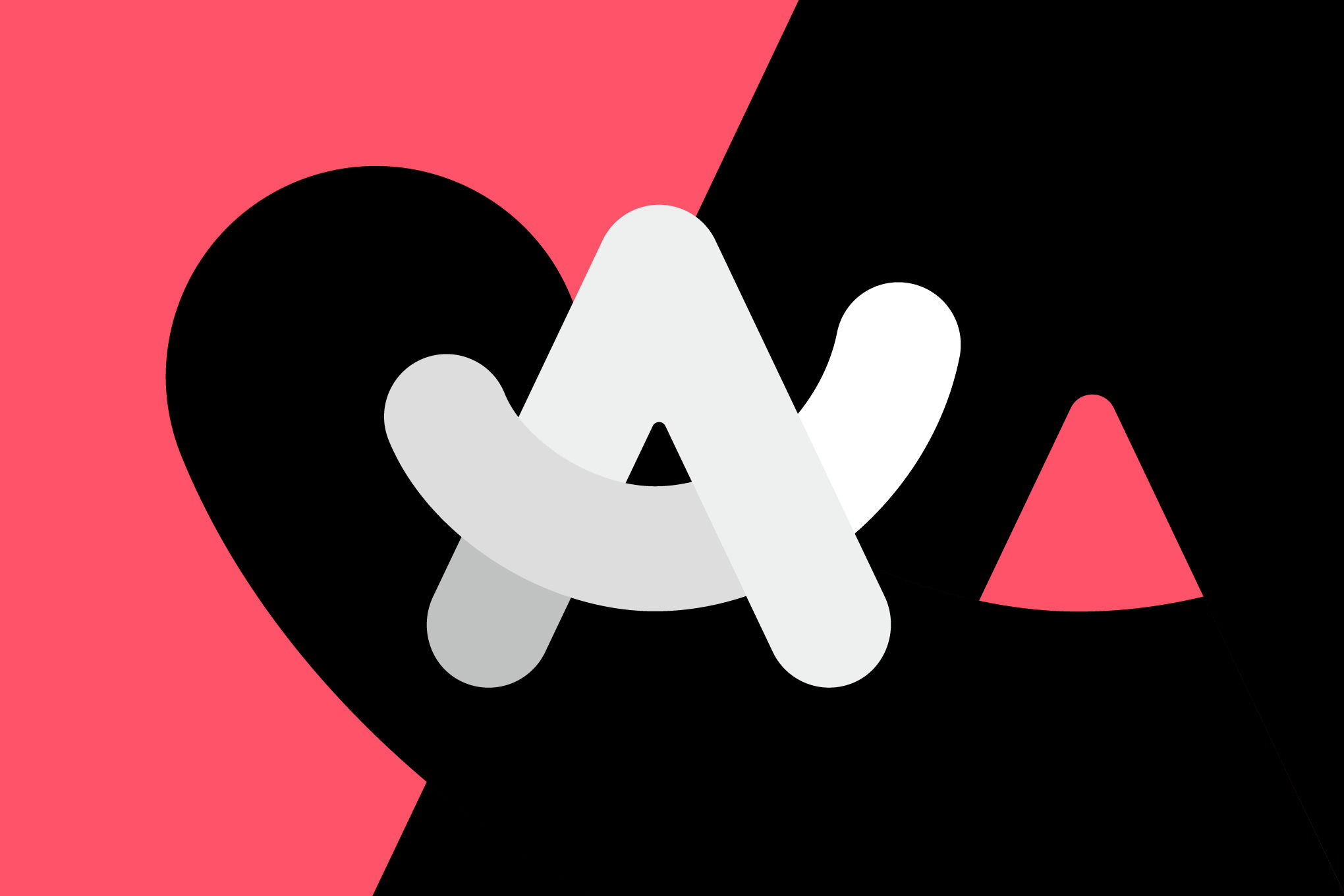Opera’s Neon Browser: An AI Agent Designed to Work While You Rest
The future of web browsing is evolving, and Opera is at the forefront with its latest innovation: Opera Neon. This isn’t just another browser; it’s being described as the first “AI agentic browser,” designed with contextual awareness to perform tasks on your behalf, potentially revolutionizing how we interact with the internet. While not yet available for everyone to experience, the promise of Neon is significant, aiming to handle complex online activities, even tackling ambitious projects like writing code, researching, building, and designing, all while you might be offline.
Opera’s vision for Neon is rooted in the belief that artificial intelligence can fundamentally transform our online experience. Henrik Lexow, Opera’s senior AI product director, emphasized this point, stating, “We’re at a point where AI can fundamentally change the way we use the internet and perform all sorts of tasks in the browser.” Opera Neon is intended to put this transformative power directly into the hands of users.
It’s worth noting that Opera previously launched a concept browser also called Neon in 2017. That earlier iteration, while innovative in design, did not gain widespread traction. The company is now bringing the name back for this entirely new, AI-driven endeavor, hoping for greater success this time around.

What Defines an ‘Agentic Browser’?
The core concept behind Opera Neon is its “agentic” nature. This term suggests that the browser is powered by sophisticated AI agents capable of understanding user intent and executing multi-step tasks autonomously. Unlike traditional browsers that primarily serve as interfaces for manual user interaction, an agentic browser aims to become a proactive assistant, using its AI capabilities to navigate the web, gather information, and complete defined objectives without constant human input.
Opera claims that Neon’s AI engine possesses the ability to “understand and interpret” user requests. This interpretation then triggers cloud-based AI agents to carry out the necessary actions. The ambitious nature of these claimed capabilities sets Neon apart from current AI integrations in browsers, which primarily focus on providing conversational assistance or generating simple text.
The Capabilities of Opera Neon’s AI Engine
The potential applications described for Opera Neon’s AI engine are wide-ranging and ambitious. According to Opera, the browser can be instructed to create various types of content and projects.
Here are some examples of tasks Opera suggests Neon can handle:
- Make Games: This implies the AI could potentially assist in generating game logic, assets, or simple playable experiences.
- Generate Reports: The AI could gather information from the web, structure it, and produce comprehensive reports on specified topics.
- Create Code Snippets: Developers could potentially ask Neon to generate code for specific functions or programming tasks.
- Build Websites: This suggests the AI could assist in designing and potentially even coding basic website structures or components.
Perhaps most intriguingly, Opera states that Neon can work on multiple tasks simultaneously and can continue working even after the user has disconnected from the internet. This offline capability for online tasks points strongly towards the use of powerful cloud-based AI processing, where the agents receive instructions and then operate externally to the user’s local machine, reporting back upon completion or reconnection.

Integrated AI Tools and Features
Beyond its primary agentic capabilities, Opera Neon also incorporates AI tools that offer functionalities seen in other contemporary AI-powered applications. These include:
- Chatbot Interface: Users can interact with Neon through a conversational chatbot. This interface allows users to:
- Search the web by posing questions naturally.
- Receive direct answers to their queries.
- Obtain “contextual information” directly from the webpage currently open in the browser, allowing for deeper understanding and analysis without leaving the page.
- Automated Task Agent (Browser Operator): Opera had previously introduced an AI agent called “Browser Operator” in March 2025. This technology is being integrated into Neon. The Browser Operator is designed to automate routine web tasks that typically involve repetitive clicks, form filling, and navigation. Examples include:
- Assisting with online shopping processes.
- Automatically filling in online forms.
- Simplifying the booking of events or accommodation.
Opera highlights that the Browser Operator interacts with webpage content “locally on the browser.” This local interaction is a key design choice aimed at preserving user privacy and security by processing sensitive information within the user’s environment rather than sending it externally for processing.

How Neon Compares to Existing AI Implementations
While Opera positions Neon as a novel “agentic browser,” it’s helpful to understand its place within the broader landscape of AI-integrated software. The chatbot interface and automated task features share similarities with existing tools:
- Microsoft Copilot: Microsoft’s Copilot integrates AI across its applications, including the Edge browser, offering search assistance, content generation, and task automation within the browser environment.
- OpenAI’s Operator: OpenAI has also explored “Operator” agents designed to control aspects of a computer, enabling automation of complex workflows beyond simple chat responses.
However, Opera’s unique proposition with Neon is integrating these capabilities into a browser designed from the ground up with AI agentics as its central principle, aiming for a deeper level of contextual understanding and autonomous task execution than what is currently common. The ability to take on complex, multi-step creative or technical tasks like generating code or building websites, and doing so potentially offline, differentiates Neon from current browser AI which is often more focused on information retrieval and simple content generation.
Availability, Pricing, and What’s Next
Despite the significant potential outlined by Opera, concrete details regarding the launch of Neon are scarce. The company has not provided a firm release date. Furthermore, while the previous Opera Neon was a free concept browser, this new AI-powered version is described as a “premium subscription product.” The specific cost structure has not been announced.
This lack of detailed information means that the real-world capabilities of Opera Neon remain to be fully demonstrated. The ambitious claims will need to be validated once the browser becomes accessible for testing.
Neon will join Opera’s existing suite of browsers, becoming the fifth addition to their lineup. Opera has been actively diversifying its browser offerings, including specialized browsers like Opera GX for gamers, Opera Crypto Browser for web3 users, and the recently announced Opera Air in February, which focuses on mindfulness with features like ambient sounds and breathing exercises.
For those interested in being among the first to experience Opera Neon and its agentic capabilities, Opera has opened a waitlist registration. Signing up for the waitlist is currently the only way to potentially gain early access to the beta version once it becomes available.
As the development of AI continues to accelerate, its integration into fundamental tools like web browsers is a natural progression. Opera Neon represents an ambitious step towards a future where the browser acts not just as a window to the internet, but as an intelligent agent capable of performing significant work on our behalf. The success of this vision will depend on its eventual implementation, performance, pricing, and how well it truly delivers on the promise of writing code while you sleep.








Comments